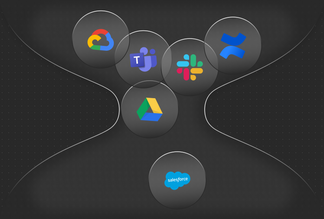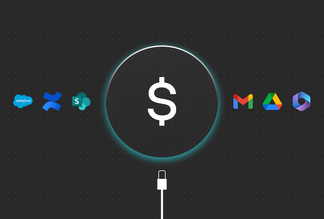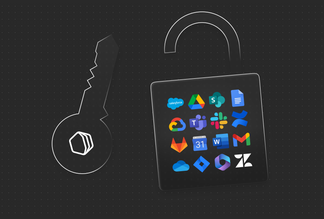

Interruptions: Treat the cause, not the symptoms
When was the last time you had a few consecutive hours at work without interruptions? This is something I’ve been thinking about since joining Qatalog in September, particularly after I watched an episode from Qatalog’s language.work documentary series all about asynchronous work.
For most people, interruptions often feel like an inevitable part of our life, both at home and at work. This is not an accident; it’s by design. As the Netflix documentary, The Social Dilemma, makes clear, social media companies have carefully designed every inch to keep us hooked, with clever psychological tricks that keep us coming back as we seek the dopamine hit of new notifications. Now the tools and applications we use for work do the same.
That’s why you have to fight back! One of the first things I did when joining Qatalog was turn off all the notifications in Slack, apart from the really critical ones. Many websites are equally problematic. Whenever you first visit some websites you'll get a pop-up that says they want to send you endless notifications. It’s inescapable unless you constantly change settings and unsubscribe to things.
The costs of interruptions are significant
Our research with Cornell University found that workers report having to interrupt at least two people five times a day, in order to find the information they need. On average, people also spend 36 minutes every day switching back and forth between applications. And they said it takes almost 10 minutes to get into a good workflow after switching. Multiply that for an entire business and that’s a lot of wasted time and productivity.
I lead software teams and they are often trying to tackle tricky, gnarly technical problems. When you are in the depths of those situations, the last thing you want is an interruption to ask you where that particular file is, let alone a cute picture of their dog on a #doglovers Slack channel. That doesn’t mean social Slack channels should be banned, but it shouldn’t come at the expense of the team’s focus.
We can all do things to help, but it shouldn't be left to individuals to figure it out on their own. If you’ve worked hard to create a collaborative and supportive culture, it’s natural that people want to respond quickly and help their colleagues. But when you are a start-up, overcoming a big technical hurdle is much more valuable than replying quickly and if you are interrupted all the time, it might never happen. That’s why it’s important for managers to put in place systems to mitigate it.
For example, days with no meetings are often an easy win, or allocating a specific engineer to manage all incoming queries each week, so that the rest of the engineering team can focus. Many years ago I worked at a company where all the developers had company-branded baseball hats. If a developer wore their hat, the product and support teams weren't allowed to interrupt them, as it meant they were doing deep work. Not surprisingly, a lot of the developers wore baseball hats for large parts of the day.
Fix the problem, not just the symptoms
But these tactics are often about helping people resist the little red notifications, or ignoring them for longer. What if you could treat the underlying problem, not the symptoms?
The first step to doing that is documentation, which allows people to find the information they need without the need to interrupt anyone. However, in large organizations finding what you’re looking for is sometimes easier said than done. Sometimes you don’t know quite what to look for, but in other instances the sheer volume of information makes things hard to find. This has been made worse by SaaS sprawl, with big companies now using an average of 211 applications.
This is precisely the problem we’re solving at Qatalog. Our Enterprise Intelligence platform provides real-time access to information across tools and systems from a single natural language interface. This means anyone across the company can search for knowledge and insights and have a precise response in seconds, from one place, no matter where the answer is stored. This might be locating a document, understanding the status of work, surfacing critical data, summarizing emails or documents, or finding a colleague with particular skills or expertise.
In my time using Qatalog it’s already helped me avoid hundreds of interruptions and saved hours of my time I would have spent searching for information. But it’s also led to me discovering new knowledge I wouldn’t otherwise have found and enabled better, more informed decisions because it’s so easy to get additional context.
The crazy thing is that we’re at the very beginning of this revolution. Today, Qatalog offers knowledge retrieval, but in the near future, Qatalog will be able to automate actions and workflows across tools. Fast forward another year or two, and we’ll see Qatalog AI agents completing complex multi-step processes across tools, guided only by objectives set by the user. Exciting times lie ahead.
To learn more about Qatalog feel free to drop me a message on LinkedIn or book a demo.


